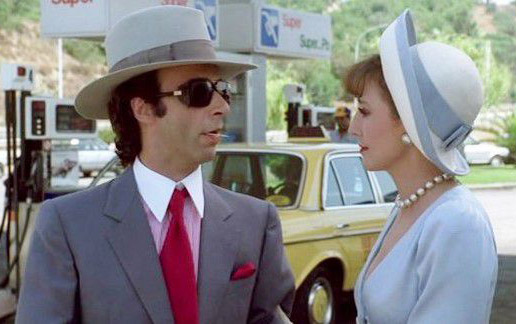Part 15 – The Genius of Roberto Benigni
Roberto Remigio Benigni was born October 27, 1952 in Manciano La Misericordia, in the Tuscan province of Arezzo. The award-winning writer and actor has received ten honorary degrees and is a Cavaliere di Gran Croce OMRI. As serious as that sounds, he is famous for his comedy work, often bumbling his way into the hearts of his audiences. His most famous work is Life is Beautiful, in which he co-wrote, directed and acted in the Oscar-winning 1997 film.
His first experiences as an actor took place in 1971 and by the middle of the decade had become famous in Italy for a television series called Onda Libera. His popularity increased with the show L’altra Domenica, in which he portrayed a lazy film critic who never watched the films he was asked to review. In 1980, he met actress Nicoletta Braschi, who was to become his wife and who has starred in most of the films he has directed.
Although known for his comedy, Benigni had a rare serious role in Federico Fellini’s last film, La voce della luna (“The Voice of the Moon”) in 1989. Benigni had a long-lasting collaboration with screenwriter Vincenzo Cerami and their series of films scored great successes in Italy with Il piccolo diavolo (The Little Devil); Johnny Stecchino (Johnny Toothpick) and Il mostro (The Monster).
Benigni is perhaps best known outside Italy for his 1997 tragicomedy, Life Is Beautiful (La vita è bella), filmed in Arezzo. The film begins in 1939 in the Kingdom of Italy, where Guido Orefice (played by Benigni) is a young Jewish man who arrives to work in the city where his uncle Eliseo operates a restaurant. Guido is comical and sharp and falls in love with a girl named Dora (played by Braschi). Guido sets up many “coincidental” incidents to show his interest in Dora, who finally gives in to his affections. They are later married and have a son, Giosuè and run a bookstore. When World War II breaks out, Guido, his uncle and Giosuè are seized on Giosuè’s birthday. They are taken to a concentration camp by train. Dora, although not Jewish, boards the same train to be near her family, but since men and women are separated in the camp, Dora and Guido never see each other during their internment. Guido uses several imaginative ways to send her messages. Throughout the experience, he tries to protect his son’s innocence by telling him that the Holocaust is an elaborate game and he must adhere very carefully to the rules to win. Benigni’s father had spent three years in a concentration camp in Bergen-Belsen and La vita è bella is based in part on his father’s experiences. The film was a critical and financial success and critics praised Benigni’s artistic daring and skill to create a sensitive comedy involving the WWII tragedy.
The film was nominated for seven Academy Awards. It won Best Foreign Language Film, Best Original Dramatic Score and Benigni received the Oscar for Best Actor – the first for a male performer in a non-English-speaking role.





